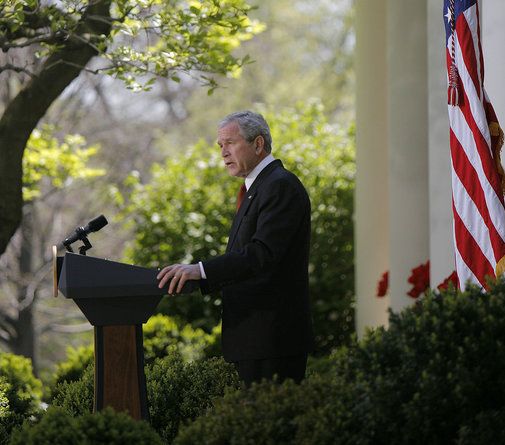Sharif-Musharraf continue talks to beat coup rumours
PRESS TRUST OF INDIA
Islamabad, Sept 25: The crises-ridden Nawaz Sharif government is holding hectic back-door consultations with Army Chief General Pervez Musharraf amid reports of persistent differences between the government and military over the commitments Sharif administration made to US.
Punjab Chief Minister Shahbaz Sharif along with a senior cabinet minister was closeted with the army chief for about 45 minutes on Friday during which matters relating to former Foreign Secretary Niaz Naik's controversial comments and US warning of a possible coup in Pakistan were discussed, English daily Pakistan Observer reported today quoting sources.
The News also confirmed the meeting and claimed that the trio may have met twice on Friday mainly on the issue of what assurance Shahbaz gave to the US officials during his recent trip to Washington as premier's special envoy.
The consultations, second in the last three days, assume importance in the light of the raging controversy over an imminent showdown between the governmentand the military, the newspapers claimed. Soon after their meeting with Musharraf, Shahbaz accompanied by Petroleum Minister Nisar Ali Khan met the prime minister and briefed him about their deliberations.
Shahbaz later met president Mohammed Rafiq Tarar and reportedly told him of his meetings with the US officials in Washington last week. The News also quoted a government source as saying that the ``real'' worry for Shahbaz is that he ``had given some assurance to the US on the question of CTBT and he has been explaining it to the army chief for the last three days.
``The real problem is how the people of Pakistan will take the government signing the CTBT, as there is nothing like conditional signing of the treaty,'' the source added.
Earlier, Pakistani media reports from Washington had claimed that during Shahbaz-US officials meetings, Pakistan was asked to sign the CTBT with the condition that if New Delhi carries out nuclear tests in future, Islamabad will have the option to do so the same.
Apart from the differences over the CTBT, the observer claimed that the US had also expressed concern about Pakistan's ``misadventure'' in Kargil and asked Islamabad to fix responsibility for the same and resume the Lahore peace process with India.
The US, according to the daily, also wants Pakistan to create a "buffer zone" in Kargil by moving back its army from the current positions. This suggestion, however, has been outrightly rejected by the Pakistan Army which has been engaged in hectic parleys within its own ranks over the last few days. The joint chiefs of staff committee met twice as did the corps commanders under the chairmanship of General Musharraf.
Oppn activists held
KARACHI: Police today rounded up around 1,000 opposition activists ahead of a planned anti-government rally here. Police launched their crackdown against leaders of the newly-formed Grand Democratic Alliance (GDA) after outlawing rallies and protests for two months in the country's commercial capital. Opposition sources said senator Nasreen Jalil of the Muttahida Qaumi Movement (MQM) was detained at her home.
Police also confirmed the mass arrests during the crackdown which started overnight but gave no figures. Police and paramilitary rangers have been deployed at the location of the rally in the city's exclusive Clifton Area. Raids were conducted at the MQM and the main opposition Pakistan Peoples Party (PPP) headquarters. The opposition parties have launched a campaign to force Prime Minister Nawaz Sharif out of office.
In a nutshell:
"In early May 1999, the Pakistani army, at the instigation of Gen. Pervez Musharraf, seizes a strategic height called Kargil in the Indian province of Kashmir. This creates a grave crisis between Pakistan in India. By early July, the CIA picks up intelligence that Pakistan is preparing to launch nuclear missiles against India if necessary.
Pakistani Prime Minister Nawaz Sharif comes to the US on July 4 to meet with President Clinton about this. Clinton is livid and yells at Sharif for breaking promises, not only about Kashmir but also about failing to help with bin Laden. According to notes taken at the meeting, Clinton says he had “asked repeatedly for Pakistani help to bring Osama bin Laden to justice." Sharif promised often to do so but had done nothing.
Instead, the ISI worked with bin Laden and the Taliban to foment terrorists.” Clinton threatens to release a statement calling worldwide attention to Pakistan’s support for terrorists. He adds, “You’ve put me in the middle today, set the US up to fail, and I won’t let it happen. Pakistan is messing with nuclear war.” Sharif backs down and immediately withdraws his troops from Kargil, ending the crisis.
But as a result, Sharif becomes deeply unpopular in Pakistan. A few months later he will be ousted in a coup by Musharraf (see October 12, 1999), the general who started the crisis in the first place."
See here, here, here and here.
The United States has done a pretty fine job since the coup of impressing on Musharraf how vital it is to keep us pacified. Not happy, but pacified. Yes it's cost us, and for now we've avoided war.
For how long?








